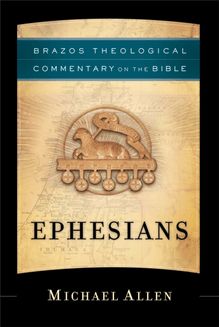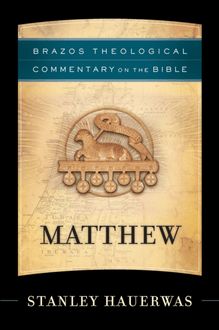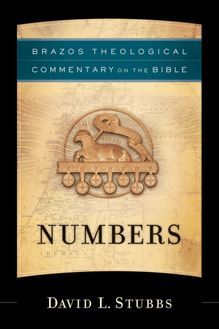Esther & Daniel (Brazos Theological Commentary on the Bible) , livre ebook
200
pages
English
Ebooks
2013
Vous pourrez modifier la taille du texte de cet ouvrage
Obtenez un accès à la bibliothèque pour le consulter en ligne En savoir plus
Découvre YouScribe et accède à tout notre catalogue !
Découvre YouScribe et accède à tout notre catalogue !
200
pages
English
Ebooks
2013
Vous pourrez modifier la taille du texte de cet ouvrage
Obtenez un accès à la bibliothèque pour le consulter en ligne En savoir plus
Publié par
Date de parution
01 juillet 2013
Nombre de lectures
3
EAN13
9781441241443
Langue
English
Publié par
Date de parution
01 juillet 2013
EAN13
9781441241443
Langue
English
Brazos Theological Commentary on the Bible
Series Editors
R. R. Reno, General Editor
Creighton University
Omaha, Nebraska
Robert W. Jenson
Center of Theological Inquiry
Princeton, New Jersey
Robert Louis Wilken
University of Virginia
Charlottesville, Virginia
Ephraim Radner
Wycliffe College
Toronto, Ontario
Michael Root
Lutheran Theological Southern Seminary
Columbia, South Carolina
George Sumner
Wycliffe College
Toronto, Ontario
© 2013 by Samuel Wells and George Sumner
Published by Brazos Press
a division of Baker Publishing Group
P.O. Box 6287, Grand Rapids, MI 49516-6287
www.brazospress.com
Ebook edition created 2013
All rights reserved. No part of this publication may be reproduced, stored in a retrieval system, or transmitted in any form or by any means for example, electronic, photocopy, recording without the prior written permission of the publisher. The only exception is brief quotations in printed reviews.
Library of Congress Cataloging-in-Publication Data is on file at the Library of Congress, Washington, DC.
ISBN 978-1-4412-4144-3
Scripture quotations are from the New Revised Standard Version of the Bible (NRSV). Copyright ©1989, by the Division of Christian Education of the National Council of the Churches of Christ in the United States of America. Used by permission. All rights reserved.
Esther
For Esther Jourdan and Martin Wells, Jeremy Hare, Robert Glenny, James Geoghegan, Francis Butler, Freya Shilson-Thomas, Melita Gostelow, and Kezia Walter.
Daniel
This commentary is dedicated to Dr. Charles Forman, the Kenneth Latourette Professor of Mission emeritus at Yale Divinity School and my mentor, who taught me, by his words and his life, what a faithful and hopeful missio ad gentes might look like.
Contents
Cover i
Series Page ii
Title Page iii
Copyright Page iv
Dedication v
Series Preface ix
Abbreviations xv
Esther, by Samuel Wells
Author’s Preface 3
Introduction to Esther 5
Setting: Esther 1–2 25
Crisis: Esther 3–4 43
Reversal: Esther 5–8 61
Outcome: Esther 9–10 81
Daniel, by George Sumner
Author’s Preface 95
Introduction to Daniel 97
Daniel 1 121
Daniel 2 129
Daniel 3 137
Daniel 4 145
Daniel 5 151
Daniel 6 155
Daniel 7 159
Daniel 8 175
Daniel 9 183
Daniel 10 195
Daniel 11 201
Daniel 12 207
De Spe A Concluding Tropological Postscript 223
Notes 227
Bibliography for Daniel 229
Subject Index 231
Scripture Index 234
Back Cover 240
Series Preface
Near the beginning of his treatise against Gnostic interpretations of the Bible, Against Heresies , Irenaeus observes that scripture is like a great mosaic depicting a handsome king. It is as if we were owners of a villa in Gaul who had ordered a mosaic from Rome. It arrives, and the beautifully colored tiles need to be taken out of their packaging and put into proper order according to the plan of the artist. The difficulty, of course, is that scripture provides us with the individual pieces, but the order and sequence of various elements are not obvious. The Bible does not come with instructions that would allow interpreters to simply place verses, episodes, images, and parables in order as a worker might follow a schematic drawing in assembling the pieces to depict the handsome king. The mosaic must be puzzled out. This is precisely the work of scriptural interpretation.
Origen has his own image to express the difficulty of working out the proper approach to reading the Bible. When preparing to offer a commentary on the Psalms he tells of a tradition handed down to him by his Hebrew teacher:
The Hebrew said that the whole divinely inspired scripture may be likened, because of its obscurity, to many locked rooms in our house. By each room is placed a key, but not the one that corresponds to it, so that the keys are scattered about beside the rooms, none of them matching the room by which it is placed. It is a difficult task to find the keys and match them to the rooms that they can open. We therefore know the scriptures that are obscure only by taking the points of departure for understanding them from another place because they have their interpretive principle scattered among them. [1]
As is the case for Irenaeus, scriptural interpretation is not purely local. The key in Genesis may best fit the door of Isaiah, which in turn opens up the meaning of Matthew. The mosaic must be put together with an eye toward the overall plan.
Irenaeus, Origen, and the great cloud of premodern biblical interpreters assumed that puzzling out the mosaic of scripture must be a communal project. The Bible is vast, heterogeneous, full of confusing passages and obscure words, and difficult to understand. Only a fool would imagine that he or she could work out solutions alone. The way forward must rely upon a tradition of reading that Irenaeus reports has been passed on as the rule or canon of truth that functions as a confession of faith. “Anyone,” he says, “who keeps unchangeable in himself the rule of truth received through baptism will recognize the names and sayings and parables of the scriptures.” [2] Modern scholars debate the content of the rule on which Irenaeus relies and commends, not the least because the terms and formulations Irenaeus himself uses shift and slide. Nonetheless, Irenaeus assumes that there is a body of apostolic doctrine sustained by a tradition of teaching in the church. This doctrine provides the clarifying principles that guide exegetical judgment toward a coherent overall reading of scripture as a unified witness. Doctrine, then, is the schematic drawing that will allow the reader to organize the vast heterogeneity of the words, images, and stories of the Bible into a readable, coherent whole. It is the rule that guides us toward the proper matching of keys to doors.
If self-consciousness about the role of history in shaping human consciousness makes modern historical-critical study critical, then what makes modern study of the Bible modern is the consensus that classical Christian doctrine distorts interpretive understanding. Benjamin Jowett, the influential nineteenth-century English classical scholar, is representative. In his programmatic essay “On the Interpretation of Scripture,” he exhorts the biblical reader to disengage from doctrine and break its hold over the interpretive imagination. “The simple words of that book,” writes Jowett of the modern reader, “he tries to preserve absolutely pure from the refinements or distinctions of later times.” The modern interpreter wishes to “clear away the remains of dogmas, systems, controversies, which are encrusted upon” the words of scripture. The disciplines of close philological analysis “would enable us to separate the elements of doctrine and tradition with which the meaning of scripture is encumbered in our own day.” [3] The lens of understanding must be wiped clear of the hazy and distorting film of doctrine.
Postmodernity, in turn, has encouraged us to criticize the critics. Jowett imagined that when he wiped away doctrine he would encounter the biblical text in its purity and uncover what he called “the original spirit and intention of the authors.” [4] We are not now so sanguine, and the postmodern mind thinks interpretive frameworks inevitable. Nonetheless, we tend to remain modern in at least one sense. We read Athanasius and think him stage-managing the diversity of scripture to support his positions against the Arians. We read Bernard of Clairvaux and assume that his monastic ideals structure his reading of the Song of Songs. In the wake of the Reformation, we can see how the doctrinal divisions of the time shaped biblical interpretation. Luther famously described the Epistle of James as a “strawy letter,” for, as he said, “it has nothing of the nature of the Gospel about it.” [5] In these and many other instances, often written in the heat of ecclesiastical controversy or out of the passion of ascetic commitment, we tend to think Jowett correct: doctrine is a distorting film on the lens of understanding.
However, is what we commonly think actually the case? Are readers naturally perceptive? Do we have an unblemished, reliable aptitude for the divine? Have we no need for disciplines of vision? Do our attention and judgment need to be trained, especially as we seek to read scripture as the living word of God? According to Augustine, we all struggle to journey toward God, who is our rest and peace. Yet our vision is darkened and the fetters of worldly habit corrupt our judgment. We need training and instruction in order to cleanse our minds so that we might find our way toward God. [6] To this end, “the whole temporal dispensation was made by divine Providence for our salvation.” [7] The covenant with Israel, the coming of Christ, the gathering of the nations into the church all these things are gathered up into the rule of faith, and they guide the vision and form of the soul toward the end of fellowship with God. In Augustine’s view, the reading of scripture both contributes to and benefits from this divine pedagogy. With countless variations in both exegetical conclusions and theological frameworks, the same pedagogy of a doctrinally ruled reading of scripture characterizes the broad sweep of the Christian tradition from Gregory the Great through Bernard and Bonaventure, continuing across Reformation differences in both John Calvin and Cornelius Lapide, Patrick Henry and Bishop Bossuet, and on to more recent figures such as Karl Barth and Hans Urs von Balthasar.
Is doctrine, then, not a moldering scrim of antique prejudice obscuring the Bible, but instead a clarifying agent, an enduring tradition of theological judgments that amplifies the living voice of scripture? And what of the scholarly dispassion advocated by Jowett? Is a noncommitted reading, an interpretation unprejudiced, the way toward objectivity, or does it simply invite the languid intellectual apathy that stands aside to make r












